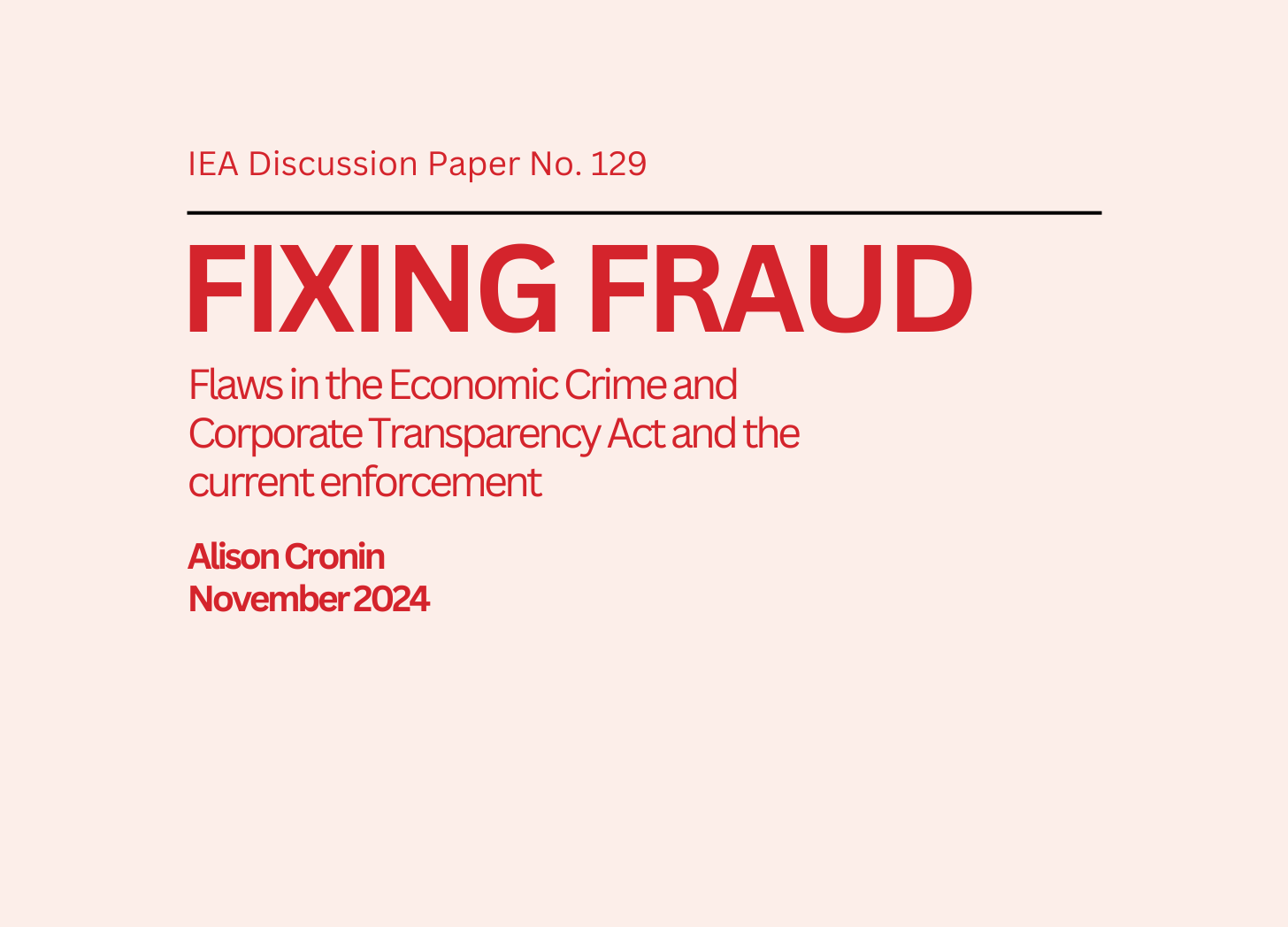|
 |
Fixing Fraud
Flaws in the Economic Crime and Corporate Transparency Act and the current enforcement approach
By Dr Alison Cronin
Given the high economic costs of fraud, the Economic Crime and Corporate Transparency Act 2023 aims to address the well-known deficiencies of the common law’s approach to corporate criminal liability with the introduction of a corporate failure-to-prevent fraud offence (s.199, not yet in force) and the statutory extension to the common law’s identification principle that attributes the criminal liability of senior officers to the corporate body (s.196, in force).
Although the new failure-to-prevent fraud is disappointing in its limited application to just large companies, the extension of the range of officers whose guilt can be attributed to the corporation, for fraud and other specified offences, has real potential to serve as a powerful corporate deterrent that will undoubtedly extend responsibility to significantly increased numbers of individual managers.
However, economic analysis demonstrates that the success of substantive law reform depends upon a radical change in the policy on corporate criminal enforcement such that large corporations should no longer be effectively guaranteed a disposal by way of a deferred prosecution agreement (DPA).
Although DPAs seek to address both the problem of detection and to mitigate collateral damage to otherwise innocent stakeholders, by offering leniency for self-disclosure bargains, this leads to a dramatic deficit in corporate deterrence and can incentivise unlawful corporate activity.
For an effective anti-fraud law and therefore greater market efficiency, the currently flawed notion of collateral damage must be corrected; not least, it should include the costs of the demonstrably ineffective DPA enforcement regime and the consequent preservation of corporations that prosper through criminal activities.
Economic analysis evidences the need for a credible threat of traditional prosecution of corporations and, to this end, for the use of a well-designed whistleblower reward scheme as the cornerstone to ensuring fair competition.
You’re currently a free subscriber to Insider. For the full experience, upgrade your subscription.
Paid subscribers support the IEA's charitable mission and receive special invites to exclusive events, including the thought-provoking IEA Book Club.
We are offering all new subscribers a special offer. For a limited time only, you will receive 15% off and a complimentary copy of Dr Stephen Davies’ latest book, Apocalypse Next: The Economics of Global Catastrophic Risks.
